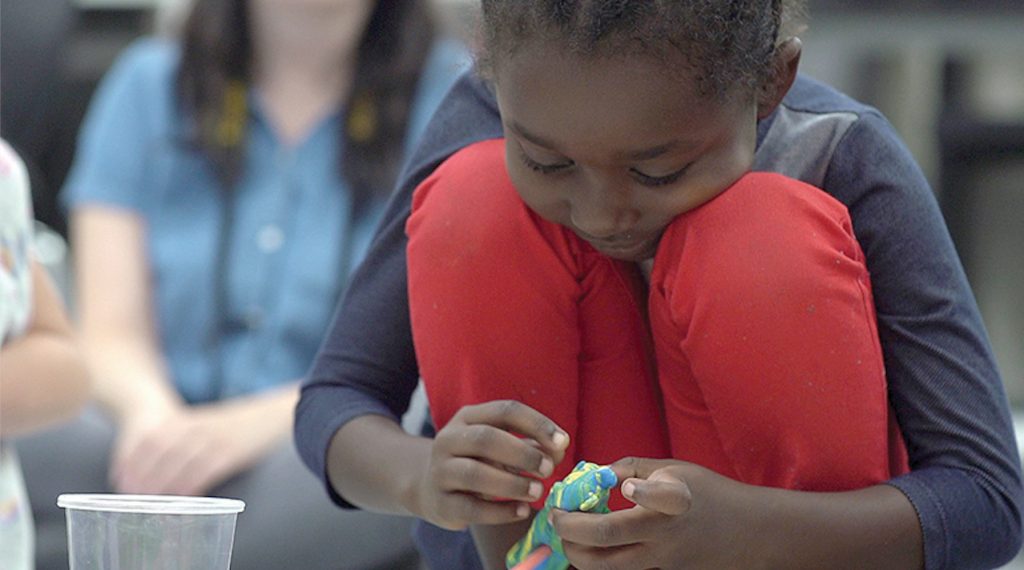
by Ellie Melero
@eleanor_melero
KANSAS CITY, Kan. — Going to a new school is hard.
But it’s even harder when that new school is in a new country.
That is the prospect many children from refugee families living in the Kansas City area are facing this month.
Every year, thousands of people immigrate to the United States as refugees. They come seeking asylum from civil wars and religious, racial and ethnic persecution, among other things. They come seeking a better life for themselves and their families. When they arrive, they need help starting their new lives.
Catholic Charities’ Refugee and Immigrant Services helps resettle almost 400 refugees in the Kansas City area each year, and many of these people are families with school-aged children.
Many of these children have never gone to school before, or they have never gone to school in the United States, and the transition to the American classroom can be a little overwhelming.
Therefore, Refugee and Immigrant Services hosted its third Refugee Youth Summer Program July 15-19.
“The whole goal of the program is to kind of introduce them to the school and get them comfortable in a school setting,” said Alex Kolker, the program coordinator. “The school setting is really different [here].
“Most of them have grown up in refugee camps, so their schools maybe were outdoors. They maybe met once a week or twice a week at different times.”
“There was probably little to no consistency,” Kolker continued, “so following those school rules can be really tough and getting adjusted to a school schedule can get tough as well.”
The summer program is a camp intended to prepare students from ages 6 through 14 for school in the fall. This year, the program hosted 29 refugee children, most from Eritrea and the Congo.
There were a few students who could already attest to how different American schools were from the ones they attended before.
Unlike many of the kids at the camp, Florence Kato and Flori Simon, 13-year-old twins from Uganda, have experience in American schools because they went to school for about two months in California before moving to Kansas.
“In Africa, we don’t use computers,” Simon said. “We are using a board to write our notes. And you can’t use Google to tell you the answers. You need to use your brain.”
Not having to walk to school here and having the opportunity to go on field trips were also new. Both said they prefer American schools.
Even though Kato and Simon have some experience in the American classroom, they both said they still appreciated the program.
The program split the kids into two classes by age, and they were given basic English as a Second Language classes and taught basic school etiquette, like how to sit during class and walk in a line.
Kolker said it’s important to teach the students things like how to ask to go to the bathroom because those are basic classroom expectations that likely won’t be taught in class.
“[These are] things we wouldn’t think of learning because we’ve been in school or been in the States so long,” Kolker said. “But they need to be taught if you’re entering school for the first time.”
In addition to learning about life in the American classroom, the kids also participated in fun activities, like soccer drills taught by Global FC and art classes taught by representatives from the Nelson-Atkins Art Museum.
The two classrooms were run entirely by volunteers who gave their time not only during the week of the camp, but also in the weeks leading up to it to learn how to teach ESL.
Stephanie Christopher, one of the volunteers, said she was impressed by the children. She said most of them spoke English well and were learning quickly in the classroom, and she said it was fun to work with them.
“As it turns out, there’s really not a huge difference between American kids and kids from Uganda,” Christopher said. “They want to be loved, they want to have friends, they want to play. It’s been really fun.”
The kids were excited to learn, and many of them caught on to the lessons very quickly. Many are looking forward to the new school year because they understand the impact a good education can have on a person’s life and they are hoping the transition to their new schools goes well.
“If you don’t go to school, you’re going to have a bad life,” Simon said. “If you go, you’re going to have a good life.”






